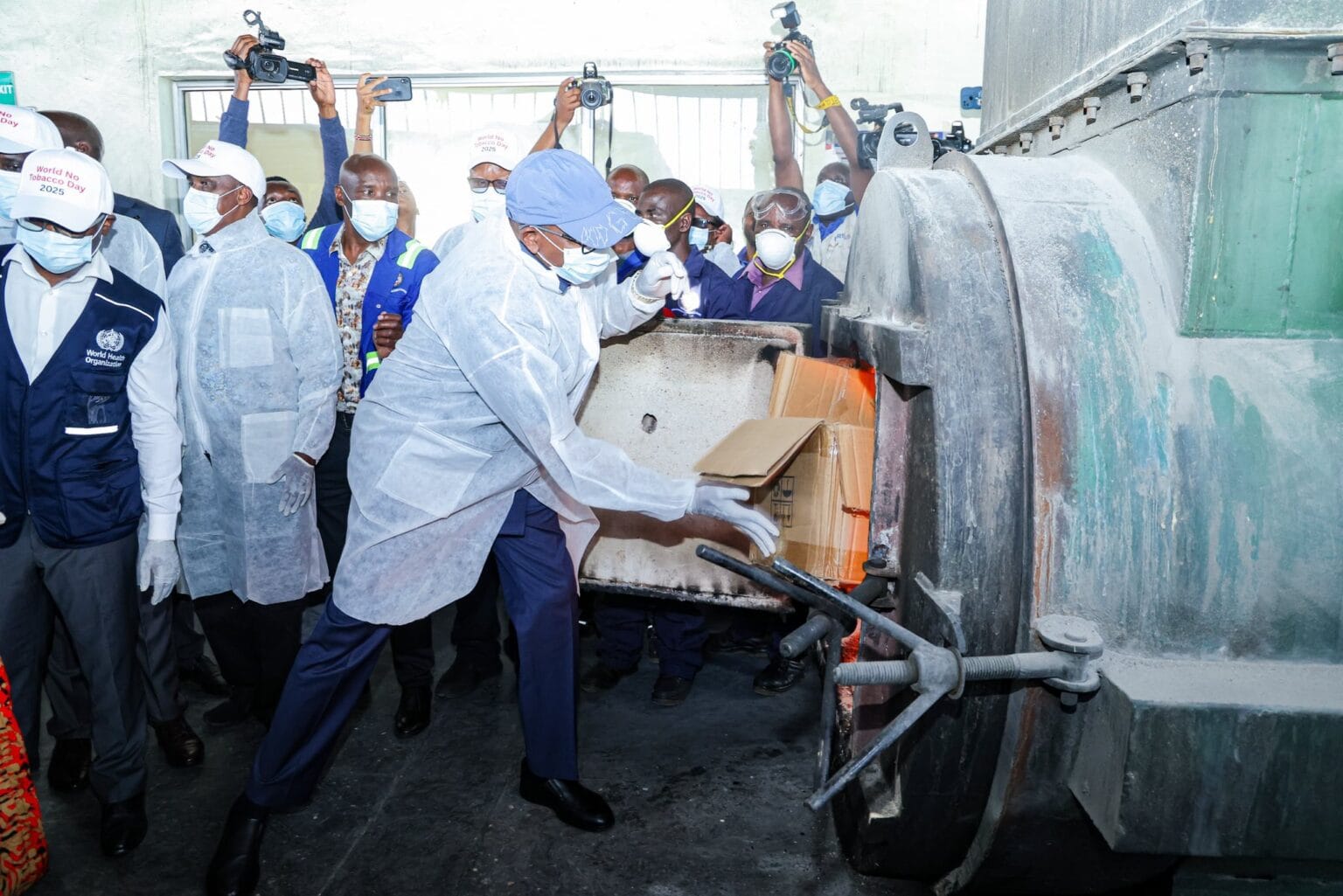On May 31, 2025, Kenya marked World No Tobacco Day with a powerful demonstration of its commitment to public health: the destruction of 5.5 tonnes of seized harmful products, including shisha, gutkha, and flavoured e-cigarettes, at the Moi Teaching and Referral Hospital (MTRH) in Eldoret.
Health Cabinet Secretary Hon. Aden Duale, who presided over the event, announced sweeping new measures targeting the nicotine trade. All existing licenses and import clearances related to the manufacture, importation, distribution, sale, or promotion of nicotine and related products have been suspended with immediate effect, in accordance with the Tobacco Control Act, 2007 and relevant laws. A 21-day window was issued for entities to reapply and demonstrate full compliance.
“This is not just about enforcing the law—it’s about protecting the future of our nation,” Duale stated. “These products are designed to appeal to the youth and deliver toxic chemicals that damage the brain, lungs, and overall health.”
Youth Targeted by New Tobacco Products
While traditional tobacco remains a public health threat, attention is increasingly turning to new nicotine products, especially vapes and flavoured e-cigarettes, which are rapidly gaining popularity among young Kenyans. Their discreet design, sweet flavours, and portrayal as a “safe” alternative to cigarettes have made them particularly appealing to adolescents.
A 2022 survey by the Kenya Tobacco Board, conducted in four counties, revealed a notable rise in youth use of e-cigarettes and nicotine pouches, particularly in urban areas. These products are often marketed on social media and are easily accessible through informal markets and online sales.
The Ministry of Health has responded with updated graphic health warnings for all nicotine and tobacco products, including vapes and nicotine pouches. These warnings, mandated by law, aim to visibly communicate the health risks to users, especially the youth.
Public Health Principal Secretary Mary Muthoni, who accompanied Duale at the event, stated:
“We are taking a proactive approach to tobacco control by updating our health warnings to address modern challenges. These graphic warnings are a vital tool in our efforts to reduce tobacco consumption and protect public health, particularly among our youth.”
Kenya Reaffirms Global Commitments
The destruction exercise also reaffirmed Kenya’s commitment as a signatory to Article 5.3 of the WHO Framework Convention on Tobacco Control (FCTC) and the Protocol to Eliminate Illicit Trade in Tobacco Products. Duale acknowledged the Border Management Committee—including the Kenya Revenue Authority (KRA), Kenya Bureau of Standards (KEBS), immigration, security agencies, and Port Health—for their vigilance in intercepting harmful imports.
“We have significantly enhanced surveillance and Port Health systems to keep such threats out of the country,” Duale said.
As the global tobacco industry pivots toward new nicotine-based products, Kenya’s decisive actions signal a firm stand to protect public health, especially for its youngest citizens.
“Every citizen and leader has a responsibility to choose what is right for our future. This is a moral and legal duty,” Duale emphasized.


